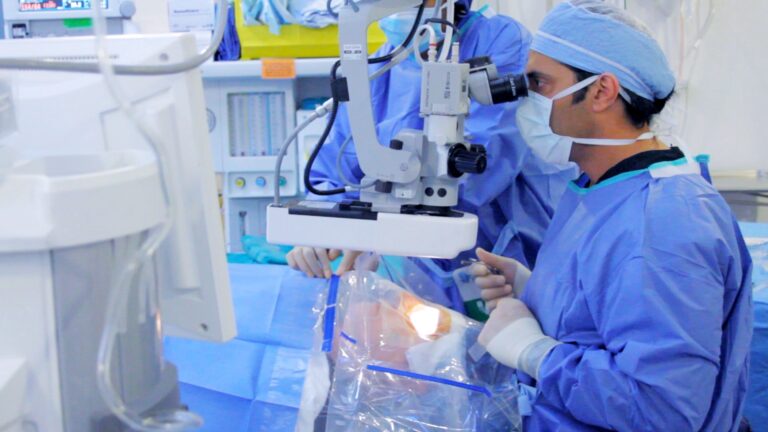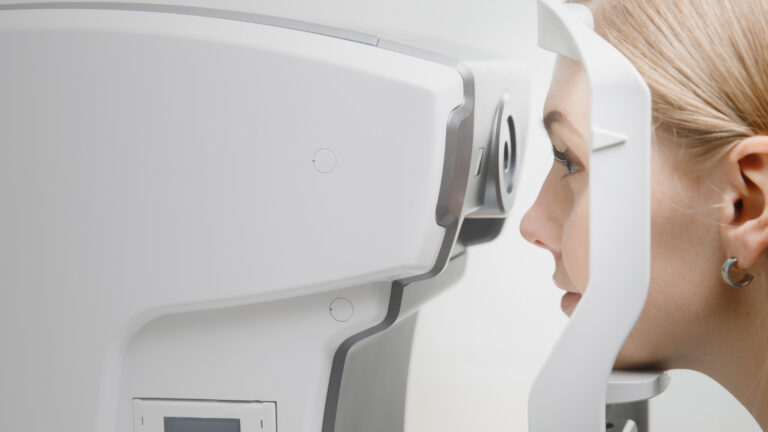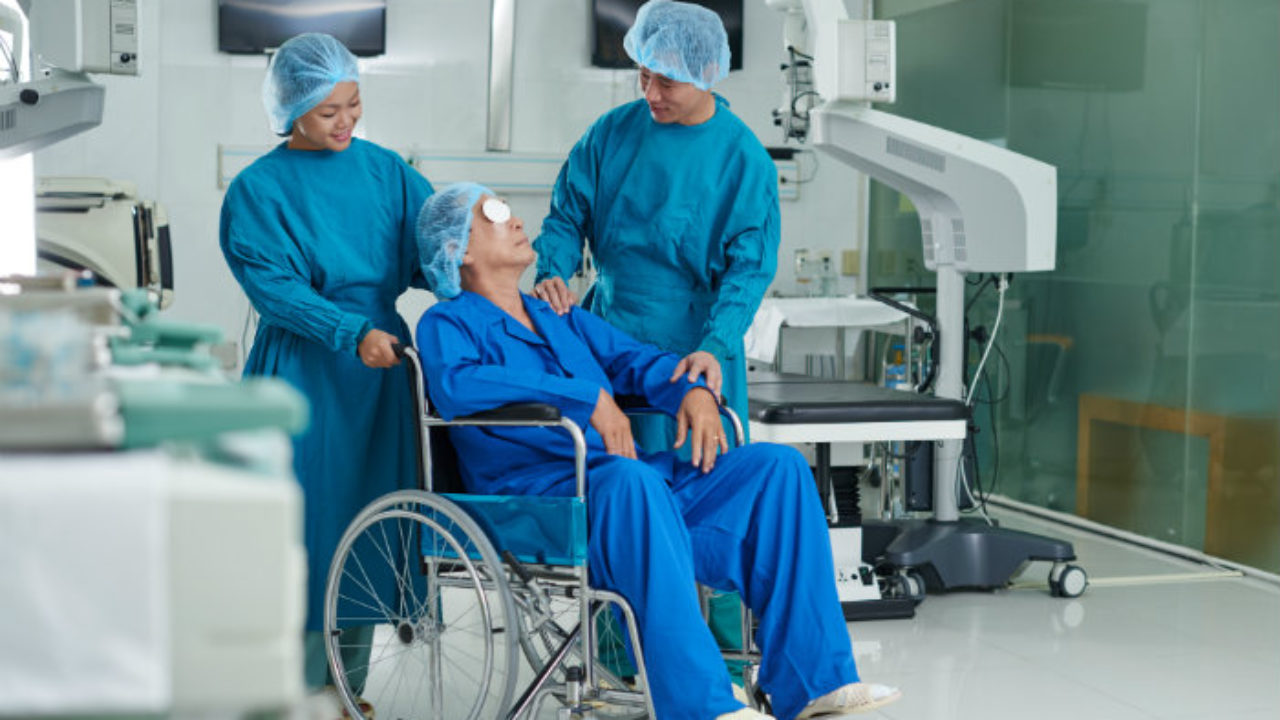
Surgery for Cataracts
Cataracts are frequent eye diseases caused by protein accumulation in the lens, which causes it to become more hazy and opacified. This results in impaired or blurred vision, which will likely worsen as the cataract worsens. Thankfully, cataract surgery is an effective and popular treatment for this problem. Cataract surgery includes removing the cloudy lens from the eye and replacing it with an artificial one.
Preparing for Cataract Surgery: What to Expect
In most cases, patients who undergo cataract surgery sydney are discharged from the hospital the same day. In most cases, an ophthalmologist can complete the procedure within an hour. Local anesthetics are used to numb the eye, and you may also be given a sedative to help you rest, so the treatment is completely painless.
While your eye adjusts to its new normal and continues to recover, you may experience some little difficulty in vision immediately after surgery and will require a ride home. Within the first few days, you should see an improvement in your eyesight, however you may feel some itching or slight pain.
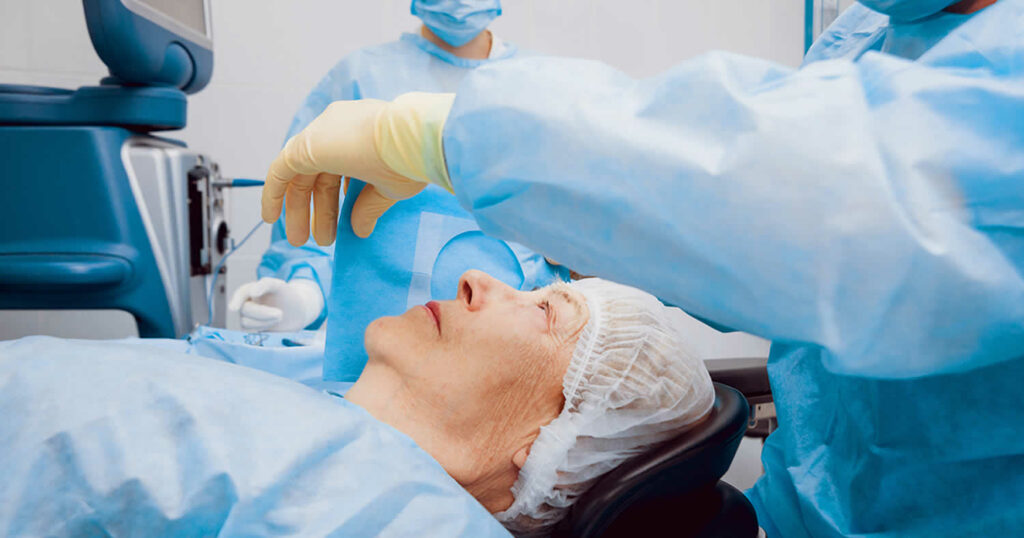
You’ll need to see your ophthalmologist often after surgery to ensure proper healing, but in general, you may anticipate being totally recovered within a month. Most individuals still require glasses at least sometimes following cataract surgery, although your eyesight will be significantly better particularly in terms of clarity. Although, your need for a glass will depend on the state of your eyes before the surgery and the type of artificial lens implanted during the surgery.
Preparation Steps for Laser Eye Surgery
There are a few things you may do before your surgery to increase your chances of a favourable outcome, despite the fact that cataract surgery is typically considered safe:
- Your doctor will do a painless ultrasound examination to assess your eye’s size and shape a week before your operation. The shape of the cornea and the length of the eye will be used to select the appropriate lens implant to be used during the procedure. A permanent solution to your vision problems, intraocular lenses are designed to replace your eye’s natural lens.
- Make sure your overall health is in an acceptable state before scheduling for a surgery; your doctor may also insist that you treat other health issues, such as diabetes or high blood pressure, before proceeding with the treatment.
- Some patients are given antibiotic and/or anti-inflammatory eye drops to use in the days before surgery to assist lessen the chance of problems.
- Arrange for a ride home from the hospital in advance, as you will not be able to drive for some time after surgery. You may need to take a few days off of work to recover, so plan accordingly. Within a few days, patients are able to resume their regular routines.
- Comply with your cataract surgeon’s preoperative recommendations. Preparation for the surgery will involve fasting for 12 hours (meaning that, you may be advised not to eat or drink during that time).
Do not be afraid to ask your doctor questions if there is anything concerning cataract surgery that you do not fully understand. Successful surgery and rehabilitation depend on everyone involved being on the same page.
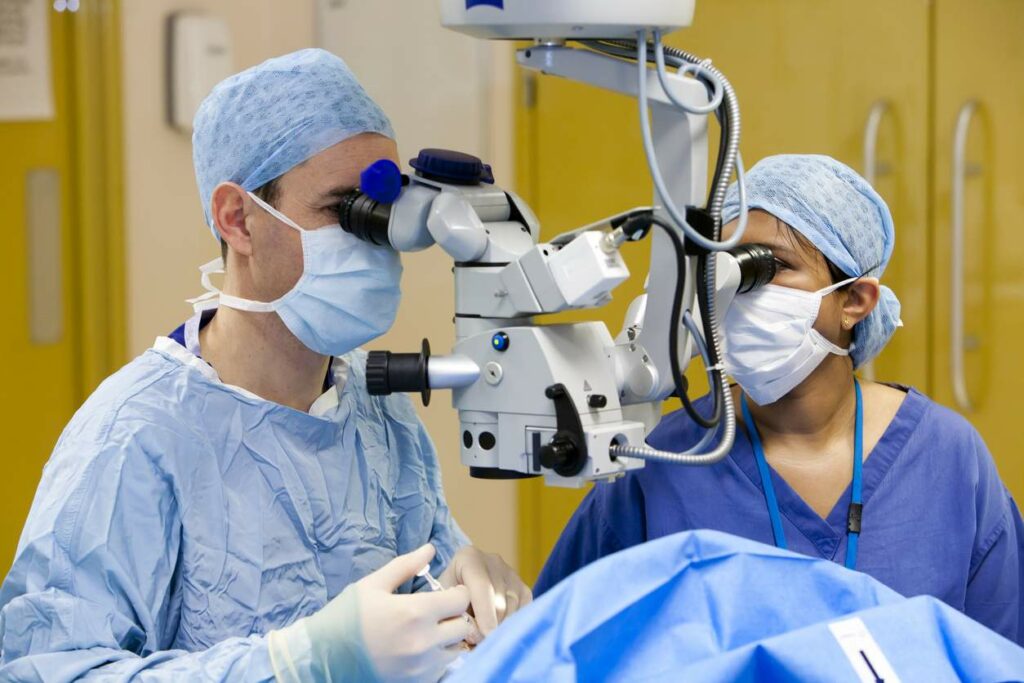
Worst Practices Before Cataract Surgery
In the days leading to your cataract surgery, there are a few things you should try to avoid doing in addition to the things you should do before the surgery day:
Cataract surgery necessitates slicing the lens, which might result in a tiny bit of blood. Even though it is normally not a big deal, your ophthalmologist may advise you to cease taking aspirin or other anti-clotting medications before your treatment. However, before you suddenly stop taking any prescribed drugs, you should always talk to your doctor, in case it’s a drug you might be taking for other illness at the same time.
If you need corrective vision after surgery, you should wear glasses instead of contact lenses. When using contact lenses, you increase the likelihood of experiencing eye irritation, which can have a negative effect on or even delay the cataract surgery effectiveness. Makeup, face lotions, and aftershave should all be left at home without use on the day of surgery. Before your cataract surgery, just wash your face with soap and water.
Don’t consume any alcohol for at least 24 hours prior to the procedure, that is in addition to fasting for 12 hours usually recommended before the surgery. This includes wine, whisky, and beer.
After cataract surgery, can you brush your teeth?
Brushing your teeth before cataract surgery might seems OK, but if you have been instructed to refrain from eating or drinking in the eight hours leading up to surgery, this might include cleaning your teeth also.
When undergoing cataract surgery, what should one wear?
Although you are free to choose what you want to wear, we advise that you wear something clean, comfortable, and loose-fitting on the day of your cataract surgery. Wearing a button-down shirt is preferable since the fluid used to wash out the cataract may sometimes spill and dampen your clothing. Because of this, you might want to carry an extra shirt in case you need to change after the operation.
Conclusion
Cataracts may only be safely removed from the eye through surgery. Cataract surgery, thankfully, is a common, routine, and very successful method of treating cataracts and restoring patients’ eyesight. You can make the most of your surgical experience if you know what to do to be ready (and what to avoid doing) before the surgery. Knowing what to do and what not to do after cataract surgery is very crucial. To learn more, get in touch with a professional today..

